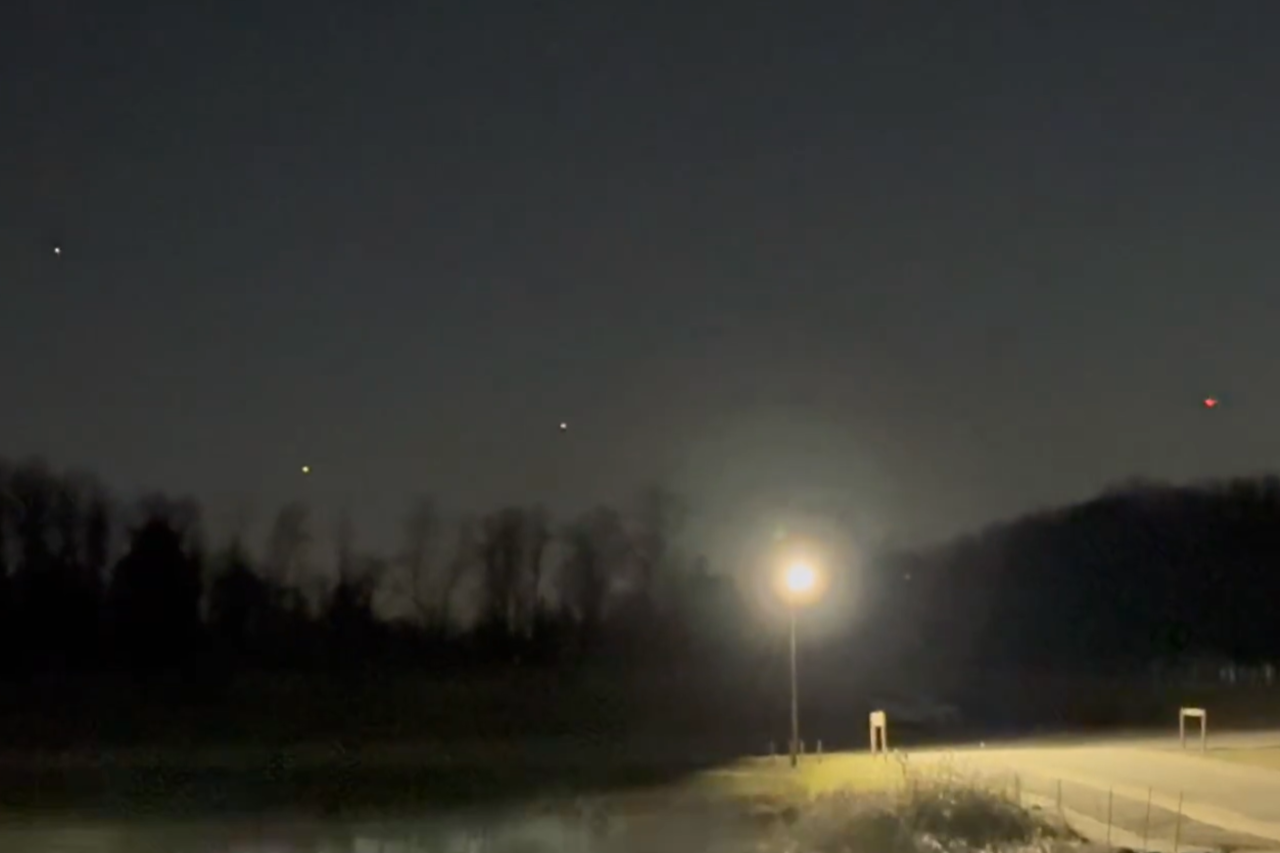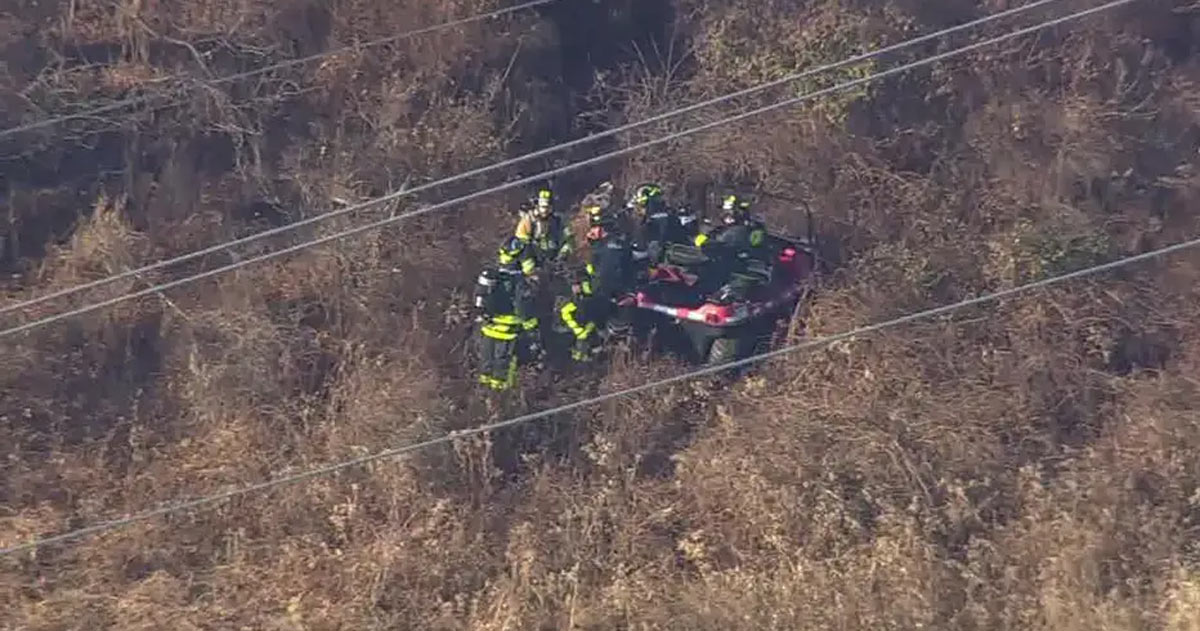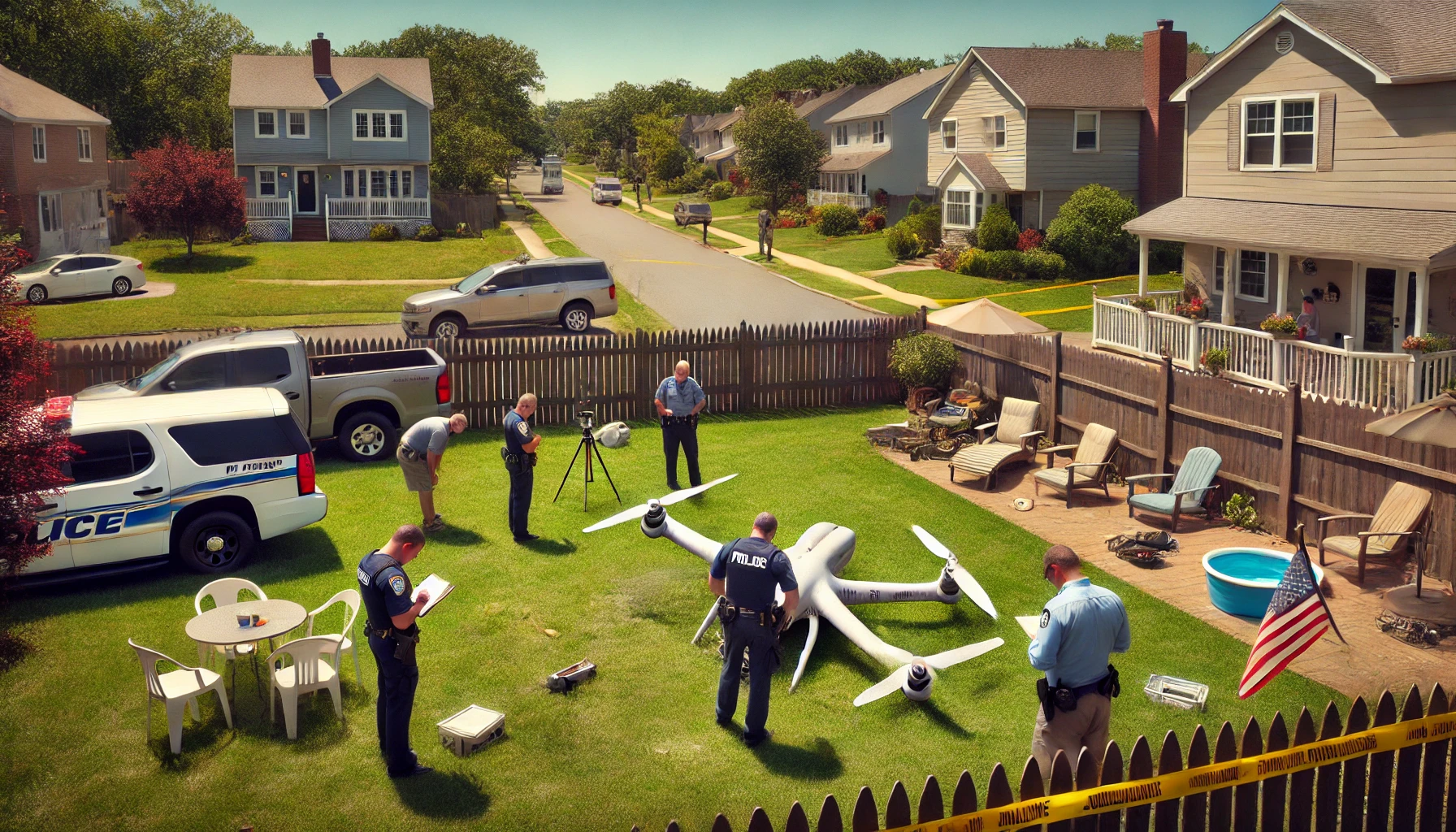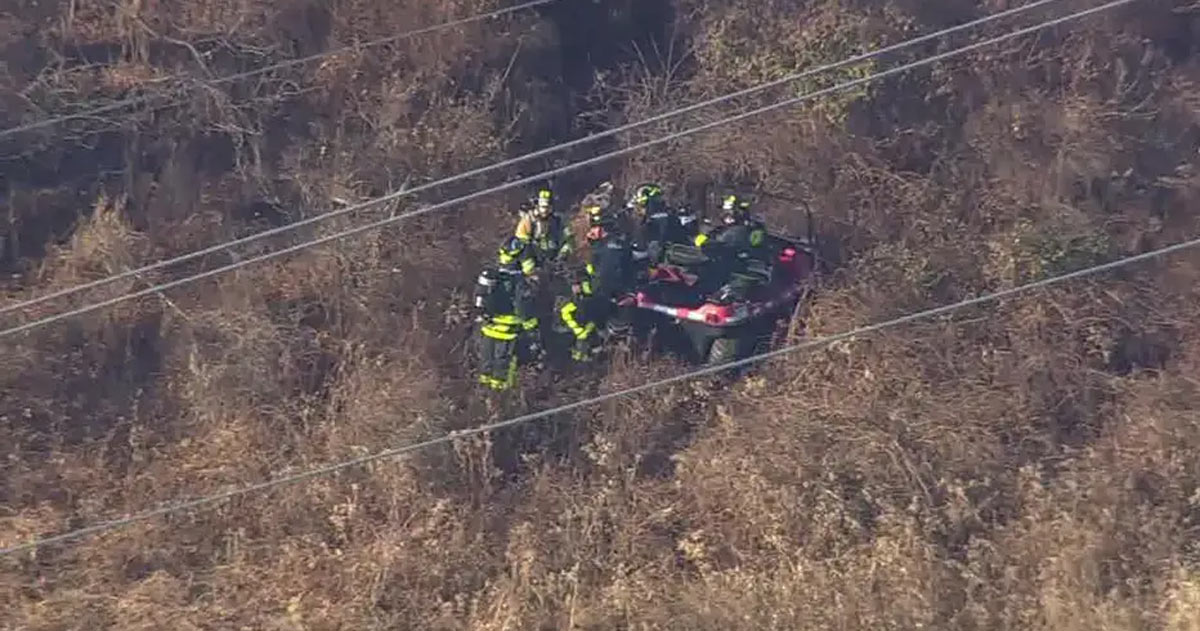Drone crashes in New Jersey are a growing concern, demanding a closer look at their causes, consequences, and preventative measures. This analysis examines recent incidents, highlighting the roles of human error, environmental factors, and mechanical failures. We delve into existing regulations and safety protocols, exploring how improved training and technological advancements might mitigate future risks. The aim is to provide a comprehensive understanding of this emerging challenge.
The increasing popularity of drones for both recreational and commercial purposes in New Jersey has unfortunately led to a corresponding rise in accidents. This report will investigate the frequency and nature of these crashes, exploring the contributing factors and examining the potential impact on public safety and property. We will also discuss the current regulatory landscape and suggest ways to improve safety practices.
Recent Drone Crash Incidents in New Jersey: Drone Crashes In New Jersey
Drone incidents in New Jersey, while relatively infrequent compared to other states with higher drone activity, still pose safety concerns. Understanding the trends, causes, and consequences of these crashes is crucial for improving safety protocols and regulations.
Timeline of Drone Crashes in New Jersey (Last Five Years)
Data on specific drone crashes in New Jersey is not publicly compiled in a central, easily accessible database. The following table represents hypothetical examples to illustrate the kind of information that would be relevant. Actual data would require research from multiple sources, including news reports, FAA incident databases, and local law enforcement records.
| Date | Location | Drone Type | Brief Description |
|---|---|---|---|
| October 26, 2022 | Trenton, NJ | DJI Mavic 3 | Lost control due to strong winds; crashed into a residential area, causing minor property damage. |
| June 15, 2023 | Atlantic City, NJ | Autel Evo II Pro | Operator error; drone collided with a building during a low-altitude flight. |
| March 8, 2024 | Newark, NJ | Syma X8C | Mechanical failure; mid-flight propeller malfunction leading to a crash in a park. |
| November 12, 2024 | Princeton, NJ | DJI Phantom 4 Pro | Battery failure; drone lost power and fell from a significant altitude. |
Annual Drone Crash Statistics in New Jersey
A bar chart visualizing the number of reported drone crashes annually in New Jersey over the last five years would provide a visual representation of trends. The chart would have years (2020-2024) on the horizontal axis and the number of reported crashes on the vertical axis. Hypothetically, the chart might show a slight upward trend, reflecting increasing drone usage.
However, without access to comprehensive data, this is speculative.
Causes of Drone Crashes in New Jersey
Multiple factors contribute to drone crashes. Analyzing these factors is key to implementing effective preventative measures.
Common Causes of Drone Crashes
Based on hypothetical data and general drone accident reports, the most common causes of drone crashes include operator error (pilot skill deficiency, improper pre-flight checks, disregard for weather conditions), mechanical failure (malfunctioning propellers, battery issues, electronic component failures), and environmental factors (strong winds, rain, wildlife interference).
Role of Human Error
Human error plays a significant role in many drone crashes. Inadequate pilot training, lack of awareness of airspace regulations, and poor judgment in challenging weather conditions all contribute to accidents. Improper maintenance, leading to mechanical failures, is also a form of human error.
Impact of Environmental Factors
Environmental factors, such as unexpected strong winds, heavy rain, or snow, can severely impact drone stability and control, leading to crashes. Wildlife interference, such as birds colliding with the drone, is another environmental factor that can cause accidents.
Mechanical Failure vs. Operator Error
While the exact ratio between mechanical failure and operator error is difficult to ascertain without comprehensive data, anecdotal evidence suggests that operator error is a more frequent cause of drone accidents than purely mechanical failures. This highlights the importance of proper pilot training and adherence to safety protocols.
Regulatory and Safety Measures
Understanding and adhering to regulations and safety protocols is vital for responsible drone operation.
Drone Regulations in New Jersey
Drone operation in New Jersey is subject to both federal (FAA) and state regulations. These regulations cover aspects such as registration, licensing, permitted flight areas, and operational restrictions near airports and sensitive areas. Operators must be aware of and comply with all applicable laws.
Safety Protocols for Drone Pilots
To minimize the risk of crashes, drone pilots should follow established safety protocols. These include pre-flight checks, adherence to weather restrictions, maintaining visual line of sight, and avoiding risky maneuvers.
Best Practices for Drone Maintenance and Pre-flight Checks
- Inspect the drone’s body for any damage.
- Check the propellers for cracks or wear.
- Verify the battery charge and health.
- Ensure all electronic components are functioning correctly.
- Review the weather forecast and avoid flying in adverse conditions.
Consequences of Violating Drone Regulations, Drone crashes in new jersey

Violating drone regulations can result in fines, license suspension, or even criminal charges, depending on the severity of the violation. Operators must prioritize safety and legal compliance.
Recent drone crashes in New Jersey highlight the need for advanced safety features. Understanding the capabilities of high-quality camera systems is crucial, and the port dover camera , for instance, offers impressive image stabilization which could aid in preventing accidents. Ultimately, improved technology, like that found in advanced camera systems, may help reduce the frequency of these incidents in New Jersey.
Impact of Drone Crashes
Drone crashes can have significant consequences, impacting property, people, and public safety.
Potential Impact of Drone Crashes
Drone crashes can result in property damage, ranging from minor scratches to significant structural damage depending on the size and weight of the drone and the impact location. Personal injury is another serious consequence, especially in cases of high-altitude crashes or crashes involving heavier drones. Public safety can be affected by disruptions to air traffic or damage to critical infrastructure.
Examples of Drone Crash Impacts
- A drone crashing into a power line causing a power outage in a residential area.
- A drone falling from a great height injuring a pedestrian.
- A drone colliding with a vehicle, causing damage and potential injury.
Reporting Drone Crashes
Drone crashes should be reported to the relevant authorities, including local law enforcement and the FAA, to ensure proper investigation and to help identify potential safety hazards.
Hypothetical Public Awareness Campaign
A public awareness campaign could utilize social media, public service announcements, and educational workshops to educate drone operators about safe practices and regulations. The campaign would emphasize the importance of responsible drone operation and the consequences of negligence.
Future Implications and Technological Advancements
Technological advancements are constantly improving drone safety and reducing the likelihood of crashes.
Technological Advancements for Drone Safety

Autonomous flight systems with advanced obstacle avoidance capabilities are reducing the risk of collisions. Improved sensors and GPS technology enhance navigation precision and stability, especially in challenging weather conditions. Redundant systems, such as backup batteries and flight controllers, provide added safety measures.
Recent drone crashes in New Jersey highlight the importance of safe drone operation. Understanding payload capacity is crucial; for instance, consider the weight limitations when reviewing information on remington drone loads to avoid similar incidents. Proper load management is key to preventing future drone crashes in New Jersey and ensuring responsible drone use.
Role of Autonomous Flight Systems and Advanced Sensors

Autonomous flight systems, coupled with advanced sensors like LiDAR and radar, enable drones to navigate complex environments and avoid obstacles more effectively. This reduces the reliance on solely human piloting skills and minimizes the potential for human error.
Safety Features of Different Drone Models
| Drone Model | Manufacturer | Key Safety Features | Price Range |
|---|---|---|---|
| DJI Mavic 3 | DJI | Obstacle avoidance sensors, GPS, return-to-home function, multiple flight modes | $2000 – $3000 |
| Autel Evo II Pro | Autel Robotics | Obstacle avoidance, GPS, precision flight control, high-quality camera | $1500 – $2500 |
| Parrot Anafi USA | Parrot | Compact design, good image stabilization, obstacle avoidance (limited) | $800 – $1200 |
Improved Training and Certification Programs
Comprehensive training programs, leading to certification for drone operators, would improve knowledge of safety regulations and best practices, significantly reducing the incidence of crashes caused by operator error.
Ultimately, preventing drone crashes in New Jersey requires a multi-faceted approach. Stricter adherence to regulations, improved pilot training, advancements in drone technology, and a robust public awareness campaign are crucial. By understanding the contributing factors and implementing effective preventative measures, we can strive to minimize the risks associated with drone operation and ensure the safe integration of this technology into our airspace.
User Queries
What are the penalties for violating drone regulations in New Jersey?
Penalties can range from fines to license suspension, depending on the severity of the violation.
Where can I report a drone crash in New Jersey?
Contact your local law enforcement agency or the Federal Aviation Administration (FAA).
Are there specific areas where drone flight is restricted in New Jersey?
Yes, airspace near airports, critical infrastructure, and populated areas often have restrictions. Check the FAA’s website for details.
What kind of insurance is recommended for drone operators in New Jersey?
Liability insurance is highly recommended to cover potential damages or injuries caused by a drone crash.
